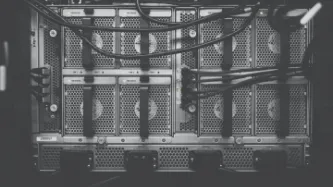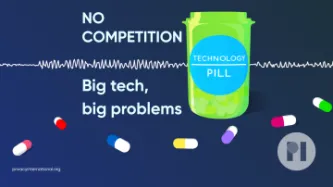Advanced Search
Content Type: Examples
The Taliban could repurpose a plan devised by the Americans before their 2021 departure for a four-year programme to create a large-scale camera network to surveil Afghan cities, The capital, Kabul, already has thousands of cameras. The Taliban administration has also consulted with Huawei about potential cooperation. Rights groups are concerned the technology will be used to crack down on protesters and some analysts question the regime's ability to pay for the programme, but records of…
Content Type: Examples
Based on a facial recognition match, the New York City Police Department sent more than 50 officers to besiege the home of a racial justice organiser, claiming he had shouted in an officer's ear at a protest in the summer of 2020. The officers were unable to produce a warrant when asked, but deployed snipers, drones, helicopters, and police dogs. The organiser, Derrick Ingram, has filed a lawsuit.https://www.the-independent.com/news/world/americas/crime/facial-recognition-technology-police-…
Content Type: Examples
The three Democratic members of the five-member Privacy and Civil Liberties Board, an independent agency within the federal branch of the US government, have recommended that the FBI and other government agencies should be required to obtain the approval of a court before reviewing the communications of US citizens collected under Section 702 of the Foreign Intelligence Surveillance Act. The Board nonetheless recommended that the programme be renewed when it comes up for review at the end of…
Content Type: Examples
A BBC investigation found more than 150 cases in which UK police abused their body-worn cameras by deleting footage, turning them off when using force, and sharing videos on WhatsApp, other social media, or in person. The cameras, which have cost at least £90 million over the last decade, were intended to improve transparency, protect police against malicious complaints, and benefit victims by improving the quality of evidence. In some cases, the behaviour was said to be unlawful by the…
Content Type: Examples
During the runup to the 2023 general election, the Zimbabwean government sent drones to monitor a rally organised by the Citizens Coalition for Change. The country also uses drones to monitor motorists, control the border, and limit crime; officials in the Kavango Zambezi Transnational Park have used it to complete an elephant census. Law enforcement authorities are now adopting facial recognition to help combat more sophisticated crimes. Zimbabwe's opposition fears that the technologies could…
Content Type: Examples
In the year after protests began in Iran in September 2022, Telegram has emerged as the social medium of choice for both the protesters and the regime they oppose. The Iranian authorities have been able to use Telegram to identify and shame protesters and broadcast false confessions, as well as mount disinformation campaigns. In September 2023, the authorities increased penalties for violations of the hijab law.https://www.codastory.com/newsletters/iran-protests-anniversary-censorship-…
Content Type: Advocacy
The European Commission proposed the PWD in December 2021 with the objective to improve the working conditions in platform work. In February 2023 and June 2023 respectively, the European Parliament and the Council reached their respective positions, with trilogue negotiations beginning in July 2023.
PI welcomes the PWD as a mechanism to protect workers’ rights in response to transformations in the workplace, specifically with regard to the growing adoption of algorithmic management systems and…
Content Type: Advocacy
In the last few years, electoral processes and related activities have undergone significant changes, driven by the development of digital technologies.The use of personal data has redefined political campaigning and enabled the proliferation of political advertising tailor-made for audiences sharing specific characteristics or personalised to the individual. These new practices, combined with the platforms that enable them, create an environment that facilitate the manipulation of opinion and…
Content Type: Press release
9 November 2023 - Privacy International (PI) has just published new research into UK Members of Parliament’s (startling lack of) knowledge on the use of Facial Recognition Technology (FRT) in public spaces, even within their own constituencies. Read the research published here in full: "MPs Asleep at the Wheel as Facial Recognition Technology Spells The End of Privacy in Public".PI has recently conducted a survey of 114 UK MPs through YouGov. Published this morning, the results are seriously…
Content Type: Long Read
TAKE ACTION TO STOP THE END OF PRIVACY IN PUBLIC1. IntroductionThe use of facial recognition technology (FRT) by law enforcement and private companies in public spaces throughout the UK is on the rise. In August 2023, the government announced that it is looking to expand its use of FRT, which it considers “an increasingly important capability for law enforcement and the Home Office”. The indiscriminate use of this dystopian biometric technology to identify individuals in public spaces is a form…
Content Type: Advocacy
Dejusticia, Fundación Karisma, and Privacy International submitted a joint stakeholder report on Colombia to the 44th session of the Universal Periodic Review at the UN Human Rights Council.Our submission raised concerns regarding the protection of the rights to freedom of expression and opinion, to privacy, and to personal data protection; the shutdown of civil society spaces; protection of the right to protest; and protection of the rights of the Venezuelan migrant and refugee population.…
Content Type: Advocacy
On 6th October 2023, we submitted our comments on the Regulation of Interception of Communications and Provision of Communication-related Information Amendment Bill (the Rica Bill), published in Government Gazette 49189, August 25th, 2023, in response to a call for comments issued by the Portfolio Committee on Justice and Correctional Services – a committee of the Parliament of South Africa responsible for overseeing responsible the Department of Justice and Constitutional Development.
In our…
Content Type: Long Read
IntroductionData about our health reveals some of the most sensitive, intimate - and potentially embarrassing - information about who we are. Confidentiality is, and has always been, at the very heart of medical ethics. People need to be able to trust their doctors, nurses and other healthcare providers so that they are not afraid to tell them something important about their health for fear of shame, judgement or social exclusion.It’s no surprise then that data protection regimes around…
Content Type: Call to Action
Add body content here
Content Type: Video
Since we recorded this podcast there has been an update on the Microsoft Activision mergerLinksPI competition page (our "very influential work")More about Dr MantzariEcosystems and competition law in theory and practice - a research paper about ecosystemsPower Imbalances in Online Marketplaces: At the Crossroads of Competition Law and Regulation - one of Dr Deni's papers looking at peconomic dependence in online marketplacesGoogle Android European court case on abuse of dominance and more info…
Content Type: Long Read
Introduction
The 28th of September marks International Safe Abortion Day. It remains a day necessary to mobilise and raise awareness of the continued struggles women and girls face when accessing reproductive healthcare, including access to safe abortion. Across the world, abortion continues to be criminalised, restricted and in some places under attack. All of which constitute severe obstacles for women and girls to fully exercise their human rights, particularly their right to privacy, which…
Content Type: Long Read
In 2023, Privacy International continues to produce real change by challenging governments and corporations that use data and technology to exploit us.Since the beginning of the year, we had some significant achievements we're proud of and want to share with you. Take a look below to see how we are changing the world for the better.SpringBetter EU regulation of digital products PI’s continuous advocacy around the Cyber Resilience Act resulted in further adjustment of the…
Content Type: Advocacy
Content Type: Explainer
On International Identity Day, we are highlighting that the technology-driven ID systems being implemented around the world are leading to new forms of surveillance and exclusion.Last September, PI and its global network of partners launched Identity Crisis - a campaign to change the narrative on identity systems. Around the world PI and our partners have seen ID systems creating and facilitating exclusion, insecurity, and surveillance.To learn more, watch our Identity Crisis video, in which…
Content Type: Examples
The rise of hybrid work has led to a rise in "bossware": increasingly intrusive technology that monitors employees, tracks their locations, and watches or listens to office workers via cameras and microphones. 90% of such systems can give employers a list of everything a worker has done that day. The cost of such systems has dropped, as has employer trust in staff. The increasing surveillance, now with AI predictive functions, threatens job security and increases the power companies have over…
Content Type: Examples
Drivers for app-based companies like Uber, tired of their lack of transparency, share their experience and swap tips to help each other game the platforms to their advantage via in-person workshops and Telegram groups, aided by the Indian Federation of App-based Transport Workers and the Telangana Gig and Platform Workers' Union. Similar movements exist around the world. In 2021, a Dutch court upheld a complaint by Uber and Ola drivers from the UK and Portugal asking those companies to provide…
Content Type: Examples
Behind every powerful AI system are huge numbers of people labelling and clarifying data to train it, contracted by companies like Remotasks, a subsidiary of Silicon Valley-based data vendor Scale AI, whose customers include the US military and OpenAI. Often the workers, who are assigned tasks they don't understand for a purpose they don't know, are sworn to secrecy. Yet labelling is crucial; it can make the difference between a car stopping to spare the person walking a bike across the road or…
Content Type: Examples
More than 150 workers employed by third-party outsourcing companies to provide content moderation for AI tools on Facebook, TikTok, and ChatGPT depend have pledged to create the African Content Moderators Union. The move to create such a union began in 2019 when the outsourcing company Sama fired Facebook content moderator Daniel Motaung for trying to form a union. https://time.com/6275995/chatgpt-facebook-african-workers-union/Publication: TimePublication date: 2023-05-01Writer: Billy…
Content Type: Examples
Outsourced artists, designers, copywriters, software developers, and call centre operators in the global south are the first to feel the effects of the arrival of generative AI, as client companies see the new technology as a way of cutting costs. Some workers are adding prompt engineering to their advertised skillsets or offer a service copy-editing and fact-checking AI-generated output; others say that using AI tools helps them produce more work faster, albeit for less money. Outsourcing…
Content Type: Examples
Technology companies that call themselves "AI first" rely on heavily surveilled gig workers who label data, deliver packages, moderate content, and perform gig work via platforms. Startups pressured by their venture capital funders even hire humans to pretend to be chatbots so they can claim to be "AI" companies. For these reasons, worker exploitation needs to be a central part of the discussion of the ethical development and deployment of AI systems.https://www.noemamag.com/the-exploited-labor…
Content Type: Examples
In a legal action, the Independent Workers Union of Great Britain and the App Drivers and Couriers Union claim that Uber's use of facial recognition software for its Real-Time ID Check to verify the identity of drivers is discriminatory because facial recognition software is known to be less accurate at identifying people with darker skin. The action was brought on behalf of two drivers whose accounts were terminated following errors made by the Microsoft-supposed facial recognition software.…
Content Type: Examples
A former Amazon warehouse worker writes that every day was "brutal" because of the "exploitative and dangerous" standards enforced by Amazon executives. Amazon's anxiety-inducing policies about bathroom use and low pay should be seen in context with fast food and retail workers, who frequently encounter violence on the job and many essential workers' struggle to afford the basic necessities of life. In response, workers are beginning to target investors as an important voice that can help…
Content Type: Examples
An excerpt from the new book "Arriving Today: From Factory to Front Door—Why Everything Has Changed About How and What We Buy", describes in detail the tracking systems used in Amazon warehouses to ensure workers meet their managers' targets. The system is a mix of surveillance, measurement, psychology, targets, incentives, slogans, and proprietary technologies.https://www.wsj.com/articles/the-way-amazon-uses-tech-to-squeeze-performance-out-of-workers-deserves-its-own-name-bezosism-…
Content Type: Examples
Documents filed with the US National Labor Relations Board show that Amazon issues warehouse workers with radio-frequency handheld scanners to track and record every minute of "time off task". The filing is part of a dispute at the State Island Amazon warehouse, where workers voted to unionise in 2022. Managers must ask the person with the most "time off task", which includes time spent in the bathroom, talking to other associates, and navigational errors, about their whereabouts for each "…












